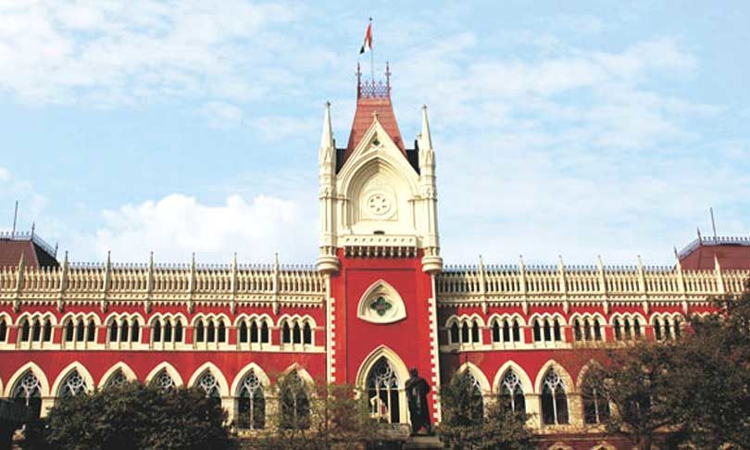- Home
- /
- High Courts
- /
- Calcutta High Court
- /
- Workman Entitled To Payment Of...
Workman Entitled To Payment Of Gratuity If He Proves Continuous Service Even After Declaration Of Formal Retirement: Calcutta High Court
Rajesh Kumar
5 May 2024 4:15 PM GMT
The Calcutta High Court single bench of Justice Arindam Mukherjee held that the was entitled to gratuity for his continued service even after the declaration of formal retirement. The bench noted that the establishment of a period of 'continuous service' is a prerequisite for the payment of gratuity and the burden of proof lies with the Workman. Brief Facts: The Workman was employed...
The Calcutta High Court single bench of Justice Arindam Mukherjee held that the was entitled to gratuity for his continued service even after the declaration of formal retirement. The bench noted that the establishment of a period of 'continuous service' is a prerequisite for the payment of gratuity and the burden of proof lies with the Workman.
Brief Facts:
The Workman was employed by Budge Budge Company (“Management”) on October 18, 1968, and achieved payment status on June 25, 1978. The Workman was retired on July 7, 2006, upon reaching the age of superannuation. However, he continued to work until July 15, 2012. Therefore, the Workman contended that this extra period of work shall be considered for the payment of gratuity.
Initially, the Workman filed a claim for gratuity before the Controlling Authority under the Payment of Gratuity Act, 1972. The Controlling Authority computed the gratuity amount at Rs. 67,643/- along with interest. This decision was accepted by the Workman without challenge, despite the exclusion of gratuity from 18th October 1968-24th June 1978 and 7th July 2006-15th July 2012.
However, the Management disputed the Controlling Authority's decision and appealed the matter. On June 9, 2023, the Appellate Authority ruled in favour of the Workman, granting gratuity for the year 1974 and allowing for a total of thirty years of continuous service for gratuity computation purposes. This decision effectively overturned the Controlling Authority's ruling and remanded the matter for recalculating thegratuity amount.
Following the Appellate Authority's decision, the Controlling Authority recalculated the gratuity, arriving at a principal sum of Rs. 88,200/- payable by the Management to the Workman. After adjusting the previously paid amount of Rs. 44,077/-, the Controlling Authority determined that Rs. 44,123/- was still owed to the Workman, along with additional interest. However, the period from 18th October 1968-24th June 1978 and 7th July 2006-15th July 2012 was still not included to calculate gratuity.
Based on the exclusion, the Workman filed a writ petition before the High Court of Calcutta (“High Court”), challenging both the Controlling Authority's initial decision and the subsequent Appellate Authority's ruling.
Observations of the High Court:
The High Court noted that the Workman failed to produce evidence demonstrating continuous employment for 240 days each year for five years which was a prerequisite for gratuity entitlement between October 18, 1968, and June 24, 1978. However, the Appellate Authority granted gratuity for 1974 based on the Workman's presumed 240 days of work that year. The Appellate Authority also confirmed continuous service between June 25, 1978, and July 7, 2006, rejecting the Management's argument against gratuity during work suspensions.
The High Court also held that the burden of proof was on the Workman to prove continuous employment from 1968 to 1973. However, the Workman failed to do so. Regarding the period from July 7, 2006, to July 15, 2012 (the period after retirement until the Workman worked), the High Court found in favour of the Workman, as the Management failed to refute continuous service.
Consequently, the High Court remanded the case to the Appellate Authority for computing gratuity and interest for the period in question. It directed the Authority to consider existing evidence within four months and mandated compliance without requiring certified copies. Finally, the writ petition was disposed of accordingly.
Case Title: Sk. Ekbal @ Ekbal Sk. vs The State of West Bengal and Ors.
Case No.: WPA 23514 of 2023
Advocates for the Petitioner: Mr Rananeesh Guha Thakurta, Ms Senjuti Sengupta, Ms Dona Ghosh, and Ms Dipa Roy
Advocates for the Respondent No. 4: Mr Balai Ch. Paul and Ms Sumouli Dey
Advocates for the State: Mr Jayanta Samanta and Mr Joydip Bose


